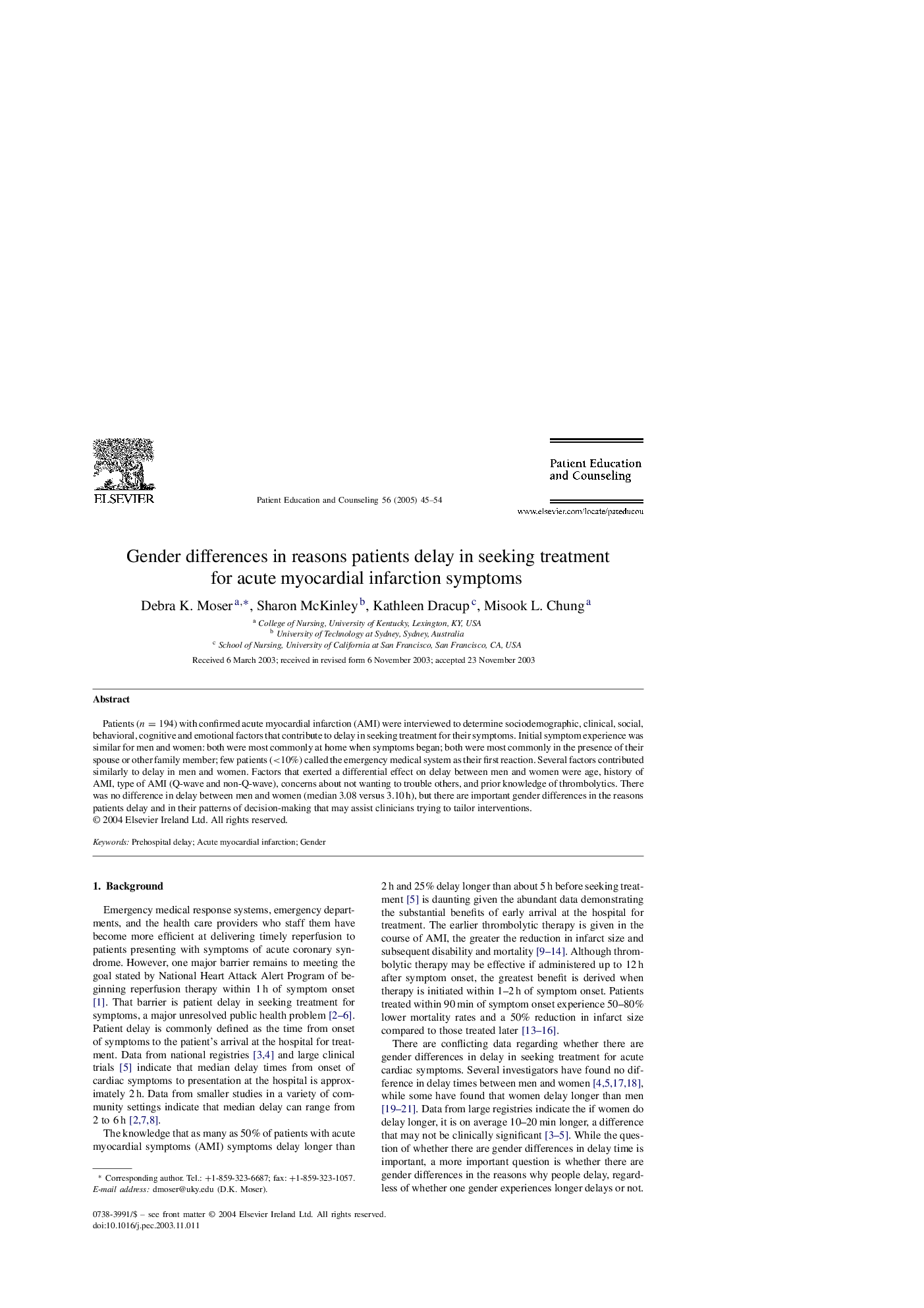| Article ID | Journal | Published Year | Pages | File Type |
|---|---|---|---|---|
| 9301951 | Patient Education and Counseling | 2005 | 10 Pages |
Abstract
Patients (n=194) with confirmed acute myocardial infarction (AMI) were interviewed to determine sociodemographic, clinical, social, behavioral, cognitive and emotional factors that contribute to delay in seeking treatment for their symptoms. Initial symptom experience was similar for men and women: both were most commonly at home when symptoms began; both were most commonly in the presence of their spouse or other family member; few patients (<10%) called the emergency medical system as their first reaction. Several factors contributed similarly to delay in men and women. Factors that exerted a differential effect on delay between men and women were age, history of AMI, type of AMI (Q-wave and non-Q-wave), concerns about not wanting to trouble others, and prior knowledge of thrombolytics. There was no difference in delay between men and women (median 3.08 versus 3.10Â h), but there are important gender differences in the reasons patients delay and in their patterns of decision-making that may assist clinicians trying to tailor interventions.
Related Topics
Health Sciences
Medicine and Dentistry
Medicine and Dentistry (General)
Authors
Debra K. Moser, Sharon McKinley, Kathleen Dracup, Misook L. Chung,
